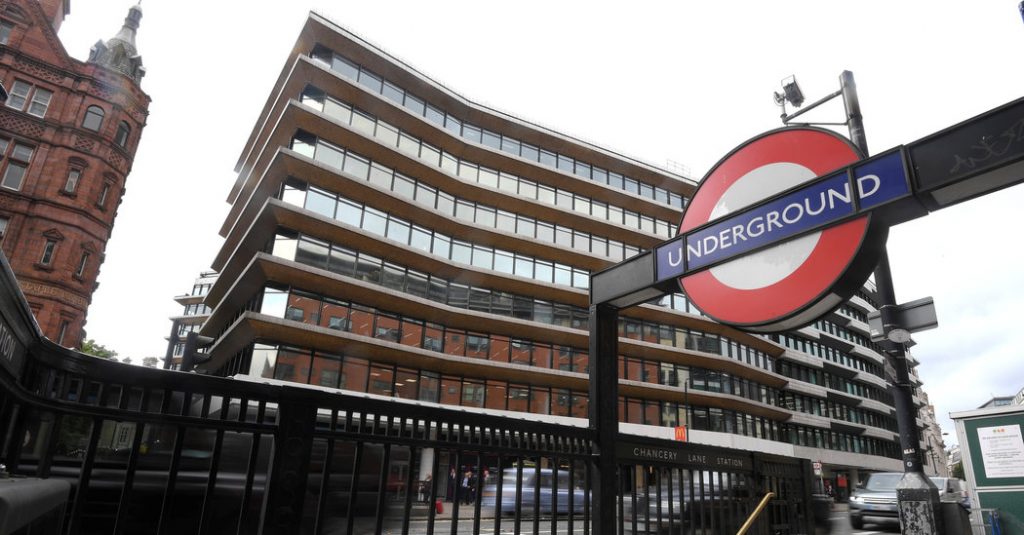After the report was issued, Britain’s Public Relations and Communications Association expelled Bell Pottinger from its ranks, making it the first big company to be forced from the group. James Henderson, Bell Pottinger’s chief executive, resigned. Clients including the British bank HSBC and the luxury firm Richemont dropped the firm, its reputation as soiled as those of some of the controversial figures it advised.
“Bell Pottinger has brought the PR and communications industry into disrepute with its actions, and it has received the harshest possible sanctions,” Francis Ingham, the public relations association’s director-general, said in a statement.
The firm’s failure underscores the broader pressures roiling the public relations industry in a whipsaw online world, where fake news, Twitterbots, manipulated Google searches and revised Wikipedia pages are valuable tools for helping to shape narratives and recast reputations.
Bell Pottinger’s collapse also highlights the eagerness of politicians, celebrities, companies and governments around the world to hire communications firm that will sometimes go to extreme lengths to influence opinion and media coverage, or to ignite activism through social networks.
Many firms do similar work, but Bell Pottinger’s penchant for taking on questionable clients raised concerns about its own ethics, especially among its British counterparts.
Timothy Bell, a London political and social operator who helped Margaret Thatcher, the former British prime minister, start her political career, was a founder of Bell Pottinger in 1998.
The firm counted Airbus and Coca-Cola as clients, but it also advised President F.W. de Klerk of apartheid-era South Africa on how to run against Nelson Mandela, and helped a foundation backed by supporters of Gen. Augusto Pinochet, the former dictator of Chile, fight his detention by Britain for human rights violations.
Credit
Themba Hadebe/Associated Press
Lord Bell, a gregarious, blunt-spoken man whom Mrs. Thatcher nominated for knighthood, insisted that there were two sides to every story, and that Bell Pottinger’s job was to make sure that the version it was telling prevailed. He left the firm last year to start a new venture.
“We help shape client reputations, tell effective stories and run creative campaigns to enhance their brand and deliver commercial success,” the firm said on its website.
As Bell Pottinger’s client list grew increasingly controversial, so did the tactics it employed.
In 2011, it attracted scrutiny after the Bureau of Investigative Journalism, a nonprofit news organization based in London, determined that Bell Pottinger managers had removed negative information from the Wikipedia page for the Uzbek government, which was accused of human rights violations. The managers also found to have employed search engine optimization strategies to drive articles on Uzbek human rights abuses lower in Google search results for the country.
Other investigations by the journalism bureau showed that Bell Pottinger had used similar tactics for other clients.
Such methods are not illegal, and are widely used by companies, governments and other public relations firms. But Bell Pottinger appeared to test the limits of its approach in South Africa last year when it was hired by Oakbay Capital, a holding company run by the Gupta brothers, members of a powerful Indian family with widespread business interests in South Africa and close ties to Mr. Zuma.
The South African president, long a target of corruption allegations, was under growing criticism for supposedly allowing the Guptas to influence government appointments and securing lucrative government contracts through cronyism. The Guptas also attracted negative press coverage stemming from accusations that they had used their wealth to influence Mr. Zuma as average South Africans languished.
After being hired by Oakbay for a monthly fee of 100,000 British pounds, or about $133,000, Bell Pottinger initiated what it called an “economic emancipation campaign.” The firm sought to portray opponents of the Guptas and Mr. Zuma as agents of white-owned businesses eager to economically disenfranchise black South Africans.
The firm edited the Guptas’ Wikipedia page to tone down negative material, and encouraged activists to spread stories online that suggested “economic apartheid” was deepening in South Africa because of the minority white population.
A hashtag, #WhiteMonopolyCapital, circulated on Twitter, and the term “white monopoly capital” began to be used on a television station owned by the Guptas, according to local news reports. Mr. Zuma also spoke of “white monopoly capital” as being a driving force behind calls for his resignation.
The campaign began to unravel when thousands of emails from Gupta company accounts were leaked in May. The messages, published by South African and British media outlets, suggested that Mr. Zuma’s son, Duduazne, a former director of some Gupta-owned companies, had instructed Bell Pottinger to pursue a strategy of racial division “along the lines of #EconomicEmancipation or whatever.”
South Africa’s main opposition party, the Democratic Alliance, accused Bell Pottinger of exploiting racial tensions and reported the scandal to the British public relations association. Mr. Henderson, the firm’s chief executive, claimed that senior Bell Pottinger executives were unaware of the tactics, but issued an apology and opened an internal investigation.
The inquiry, conducted by the British law firm Herbert Smith Freehills, found that Bell Pottinger had breached ethical principles by engaging in a “racially divisive and/or potentially offensive” campaign. The firm had also sought to mislead or undermine journalists asking questions about the campaign, the report said. The investigation also found that the firm had used “unsavvy” employees with little knowledge of South Africa’s political situation.
A week after the report’s release, Bell Pottinger crumpled into insolvency.

